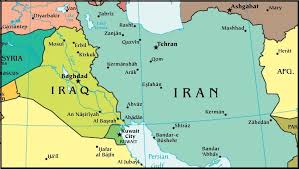Saudi Arabia’s Delta Oil Company is seeking deal advisers to assist with its effort to take over the development of Iraq’s Akkas gas field, according to industry sources.
The Akkas field, which has reserves of 5.6 trillion cubic feet and was discovered in 1992, is operated by Korea Gas Company (Kogas).
It is located in the western Anbar province, near the Syrian border, and is Iraq’s largest known gas field.
In 2011, Kogas signed a contract with the Iraqi government to develop the field and planned to produce 400 million standard cubic feet a day (cf/d), but production plans fell through because of the war in the region.
The South Korean firm’s $5.8bn project to develop the field was put on hold after Islamic State seized large territories in Anbar in May 2014.
Security problems
Kogas halted operations after multiple attacks by militants against the company’s sites in the field. Soon after operations were stopped, the site was occupied by Isis.
In November 2017, Baghdad announced that Iraqi forces had recaptured the Akkas gas field from Isis.
It is understood that Iraq’s talks with the Kogas team in 2018 revolved around the damage inflicted on the asset by the militants and how soon operations could resume.
These negotiations failed to lead to the project restarting, however.
In May 2020, Iraq said Saudi Arabia had agreed to allow Saudi companies to invest in the project to develop the Akkas field, increasing optimism that the scheme would see new momentum.
Optimism grew on 9 June 2020, when Iraq announced that it was moving ahead with plans to develop both the Akkas field and Mansouriya, another non-associated gas field, which is estimated to have the capacity to produce 300 million standard cf/d.
Iraq’s Oil Ministry said it was in discussions with Kogas to restart the development of the Akkas field and that a new partner could potentially be brought in to speed things up.
In June 2021, it was announced that Delta Oil Company was in talks to develop the Akkas gas field alongside the US oil services company Schlumberger.
Both Saudi Arabia and the US, which are looking to contain Iranian influence, have good reason to assist Iraq in developing its non-associated gas fields as it would reduce Iraq’s economic reliance on Iran.








Comment here